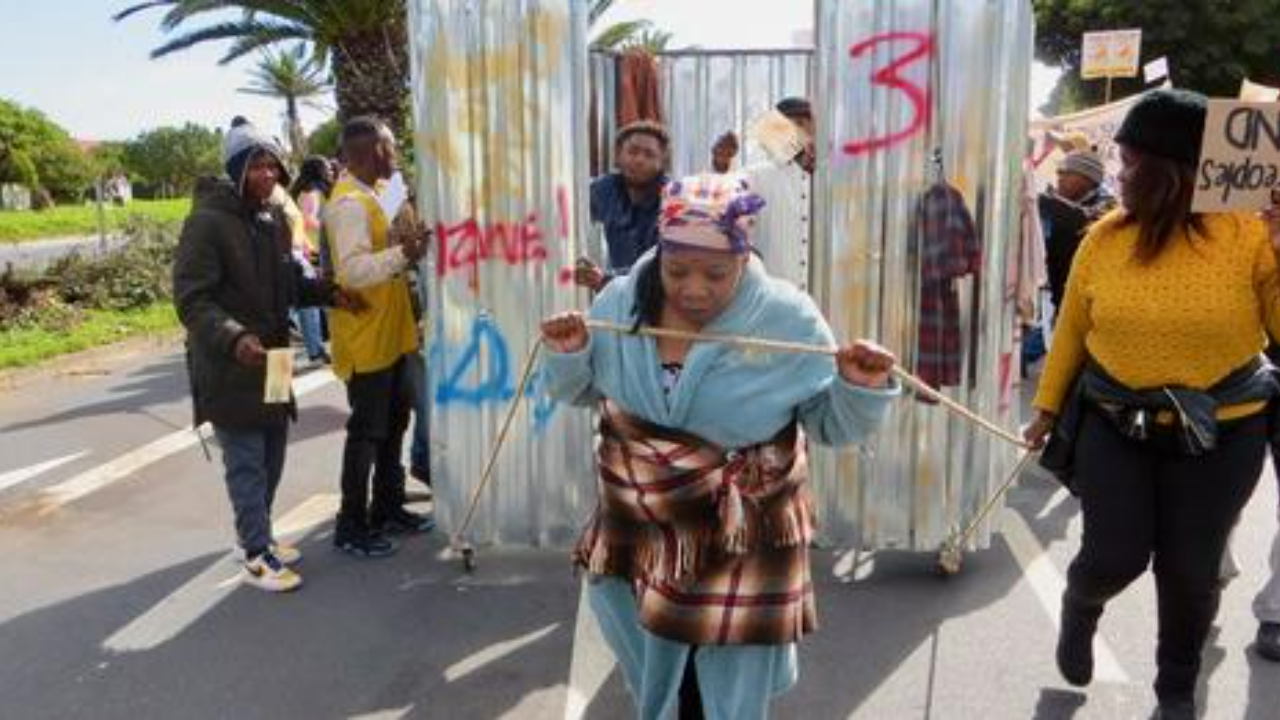News
Housing Advocates March to the President’s Residence in South Africa

According to land activists advocating for its use, the State Land Disposal Act of 1961 presents a potential solution to accelerate the availability of public land for human settlement. Around 600 individuals marched to President Cyril Ramaphosa’s official residence in Cape Town, urging him to leverage this act for the benefit of the people as reported by All Africa. This legislation empowers the President to allocate public land for various purposes, including donation, sale, lease, or exchange.
Also Read: End of August Marks No-Confidence Motion Against Gwamanda
The activists have identified 32 parcels of land that could be swiftly allocated through this act, expediting community initiatives. Demonstrators marched with poignant placards bearing messages like “Return land to people’s hands,” “President hear our plea,” and “Secure homes, secure futures,” while pulling a symbolic mobile shack to the gates.
Thumeka Mzayiya, among those at the forefront, emphasised the urgency of their request, stating, “If the President doesn’t give us land, we will place all our shacks at his place.” Wiseman Mpempho, Secretary of Intlungu Yabahlali Basematyotyombeni, highlighted the ongoing challenges faced by the community due to inadequate land access.
In a coordinated effort, land activist organisations announced their intention to submit applications for 32 underutilised parcels of public land, utilising the State Land Disposal Act, to benefit communities living with uncertain tenure. These parcels are spread across Gauteng, KwaZulu-Natal, and the Western Cape.
Despite its origins in apartheid-era legislation, the State Land Disposal Act 48 of 1961 confers authority upon both the President and national/provincial ministers of Public Works to allocate public land. While adherence to other regulations is necessary for such allocations, there are no legal impediments to donating public land to improve communities’ quality of life, security, dignity, and productivity.
Nick Budlender, a researcher at Ndifuna Ukwazi, elucidated the approach communities took to identify suitable land, gather relevant data, and collaborate on potential development mechanisms. The process culminates in applications sent to key government figures for consideration.
Budlender highlighted the collapse of housing delivery due to institutional dysfunction and insufficient government capacity. He emphasised that the chosen approach for land allocation must prioritise community needs, involving consultation and collaboration for successful development and management.
Unlike the debated expropriation bill, the State Land Disposal Act applies exclusively to public land, allowing for more immediate action. The organisations engaged in this campaign, including Ndifuna Ukwazi, Indibano Yabahlali, Intlungu YaseMatyotyombeni, Reclaim the City, Housing Assembly, Surplus People’s Project, Barney Malokoena section, Abahlali baseMjondolo (KZN), and Inner City Federation (JHB), consider this application phase as just the beginning, with plans to collaborate with more communities across various provinces in the country, primarily focusing on the Western Cape, Kwazulu-Natal, and Gauteng.
Questions addressed to the presidency remained unanswered as of the publication date.
Also Read:
Follow us on Google News
Photo: Facebook / @allAfrica.com





















